
Kano: The Heartbeat of Northern Nigeria
Kano, one of Nigeria's oldest cities, is a bustling hub of culture, history, and commerce. As you step into this vibrant city, you are immediately greeted by a mix of the old and the new. The ancient city walls and gates that once protected Kano still stand tall, symbolizing the city's rich heritage. Within the walls, the Emir's Palace is a must-visit, offering a glimpse into the regal past of Kano's traditional rulers. The architecture is a fusion of Arab and African influences, creating a unique and captivating aesthetic. Kano is also famous for its bustling markets. The Kurmi Market, established in the 15th century, is one of Africa's largest and oldest markets. Here, you can find everything from traditional textiles and leather goods to spices and local crafts. The market is a sensory delight, with vibrant colors, the aroma of exotic spices, and the sounds of bustling traders. For a more modern shopping experience, the city also has several malls and boutiques. The city is also known for its cultural festivals, which provide an immersive experience into the local traditions and customs. The Durbar Festival is a grand event held during Eid celebrations, featuring horse parades, traditional music, and dances. It's a spectacle of color and energy that captivates visitors from around the world. Another highlight is the Kano State History and Culture Bureau, which offers exhibitions and artifacts that narrate the city's storied past. Kano's cuisine is another highlight, offering a tantalizing array of flavors. From the spicy suya (grilled meat) to the rich and savory jollof rice, the local food scene is both diverse and delicious. Many restaurants and street vendors serve these local delicacies, providing an authentic taste of Kano's culinary traditions. While Kano is a city deeply rooted in its traditions, it is also a place of modernity. The city's infrastructure has seen significant improvements, with better roads and public transportation making it easier for tourists to explore. With its blend of historical significance, cultural richness, and modern amenities, Kano offers an unforgettable experience for any traveler.
Local tips in Kano
- Visit the Emir's Palace early in the day to avoid crowds and get the best experience.
- Wear comfortable shoes for walking through the vast Kurmi Market.
- Respect local customs and dress modestly, especially when visiting religious sites.
- Try the local suya from street vendors for an authentic taste of Kano's cuisine.
- Plan your visit around the Durbar Festival for a unique cultural experience.
- Use reputable transportation services to navigate the city safely.
Kano: The Heartbeat of Northern Nigeria
Kano, one of Nigeria's oldest cities, is a bustling hub of culture, history, and commerce. As you step into this vibrant city, you are immediately greeted by a mix of the old and the new. The ancient city walls and gates that once protected Kano still stand tall, symbolizing the city's rich heritage. Within the walls, the Emir's Palace is a must-visit, offering a glimpse into the regal past of Kano's traditional rulers. The architecture is a fusion of Arab and African influences, creating a unique and captivating aesthetic. Kano is also famous for its bustling markets. The Kurmi Market, established in the 15th century, is one of Africa's largest and oldest markets. Here, you can find everything from traditional textiles and leather goods to spices and local crafts. The market is a sensory delight, with vibrant colors, the aroma of exotic spices, and the sounds of bustling traders. For a more modern shopping experience, the city also has several malls and boutiques. The city is also known for its cultural festivals, which provide an immersive experience into the local traditions and customs. The Durbar Festival is a grand event held during Eid celebrations, featuring horse parades, traditional music, and dances. It's a spectacle of color and energy that captivates visitors from around the world. Another highlight is the Kano State History and Culture Bureau, which offers exhibitions and artifacts that narrate the city's storied past. Kano's cuisine is another highlight, offering a tantalizing array of flavors. From the spicy suya (grilled meat) to the rich and savory jollof rice, the local food scene is both diverse and delicious. Many restaurants and street vendors serve these local delicacies, providing an authentic taste of Kano's culinary traditions. While Kano is a city deeply rooted in its traditions, it is also a place of modernity. The city's infrastructure has seen significant improvements, with better roads and public transportation making it easier for tourists to explore. With its blend of historical significance, cultural richness, and modern amenities, Kano offers an unforgettable experience for any traveler.
When is the best time to go to Kano?
Iconic landmarks you can’t miss
Kano Zoo
Experience the vibrant wildlife and enriching atmosphere of Kano Zoo, a top destination for family outings and wildlife education in Nigeria.
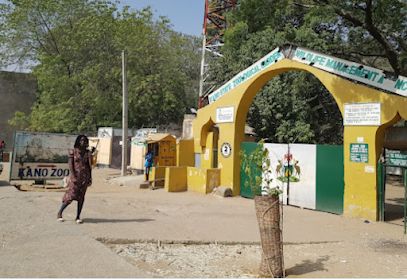
Emir's Palace Kano City
Explore the historic Emir's Palace in Kano City, a magnificent attraction showcasing Nigeria's rich cultural heritage and stunning architecture.
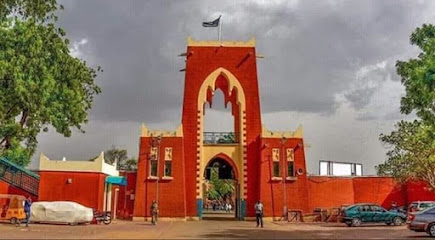
Mallam Aminu Kano International Airport (KAN)
Explore Kano's vibrant culture and history through Mallam Aminu Kano International Airport, your gateway to Nigeria's northern treasures.
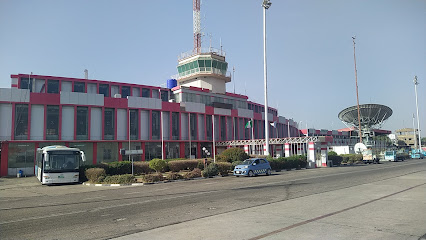
Filmhouse Cinemas Kano
Discover the ultimate cinematic experience at Filmhouse Cinemas Kano, where the latest movies meet modern comfort in a vibrant atmosphere.
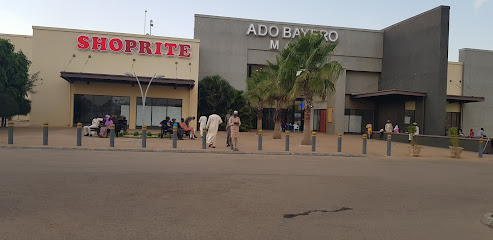
Chilla Luxury Suites Kano
Experience luxury and comfort at Chilla Luxury Suites in Kano, where modern amenities meet the rich culture of Nigeria's historic city.

Meena Events Center
Discover the elegance and versatility of Meena Events Center, your premier destination for unforgettable events in Kano, Nigeria.
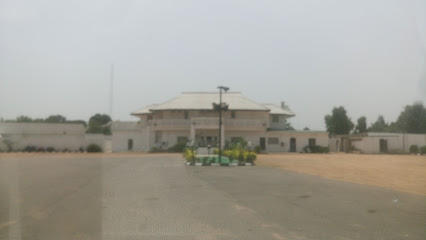
HAMDANA INTERNATIONAL CO. NIG LTD
Explore the lively HAMDANA INTERNATIONAL CO. NIG LTD Market in Kano – a hub of culture, commerce, and vibrant local life.
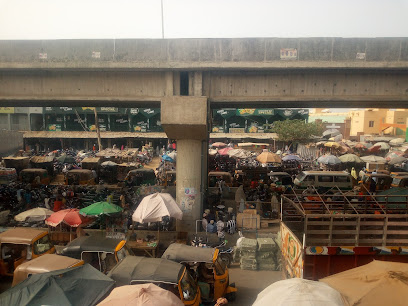
caps sellers
Discover the heart of Kano's culture at the Caps Sellers Market, a vibrant marketplace for unique handmade caps and local craftsmanship.
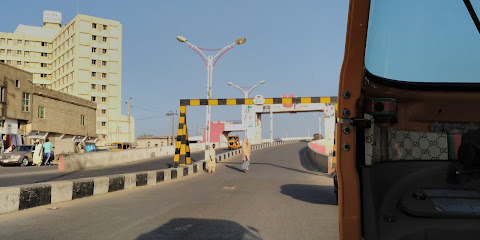
Cilantro Kano
Experience authentic Indian cuisine at Cilantro Kano, where every dish tells a story of rich flavors and cultural heritage.
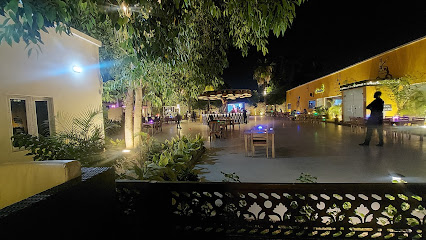
Sabon Gari Market
Discover the vibrant Sabon Gari Market in Kano, where colorful stalls, local delicacies, and rich culture await every visitor exploring Nigeria's bustling heart.
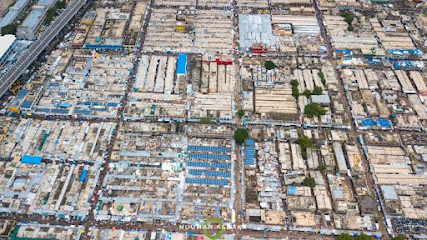
Igwe's Palace
Experience the authentic flavors of Kano at Igwe's Palace, a must-visit dining spot that offers a taste of Nigerian culture and cuisine.
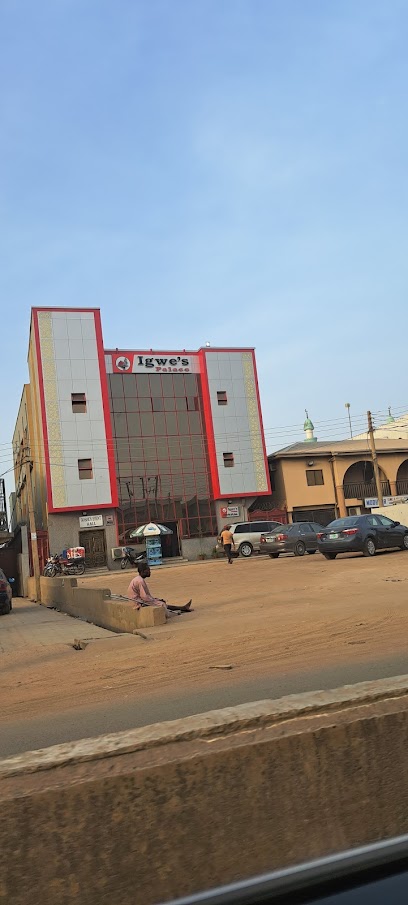
Kofar Gadon Kaya
Explore Kofar Gadon Kaya, a historic tourist attraction in Kano, Nigeria, where culture and tradition come alive amidst stunning architecture.
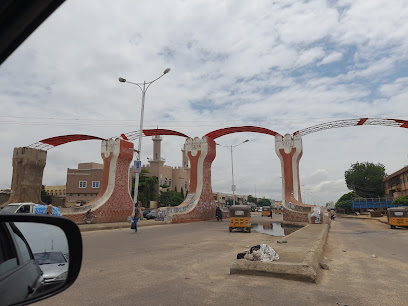
Naibawa Motor Park
Discover the vibrant atmosphere of Naibawa Motor Park, a unique urban space in Kano, Nigeria, where culture and community come alive.
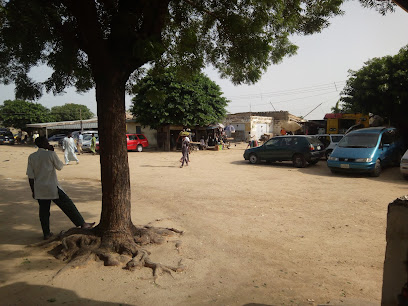
Gidan Dan Hausa Museum and Kano State Cultural Centre
Immerse yourself in the rich history and vibrant culture of the Hausa people at the Gidan Dan Hausa Museum and Kano State Cultural Centre in Kano, Nigeria.
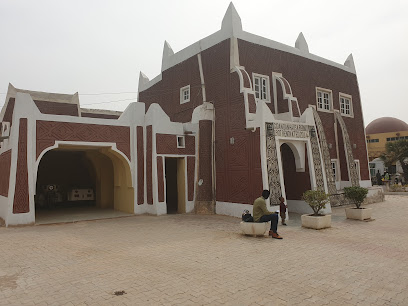
Yankaba Motor Park, Kano
Discover the vibrant culture of Kano at Yankaba Motor Park, a bustling transport hub filled with local cuisine and rich community life.
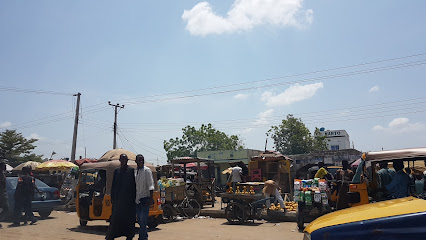
Unmissable attractions to see
Kano Zoo
Explore the beauty and diversity of wildlife at Kano Zoo, a top destination for nature lovers and families in Nigeria.
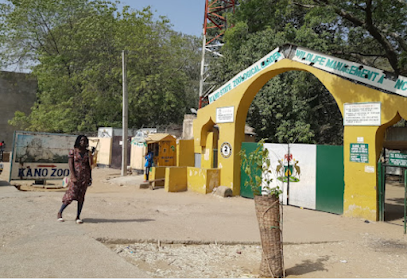
Emir's Palace Kano City
Explore Emir's Palace in Kano City, a stunning cultural landmark showcasing traditional Hausa architecture and vibrant local heritage.
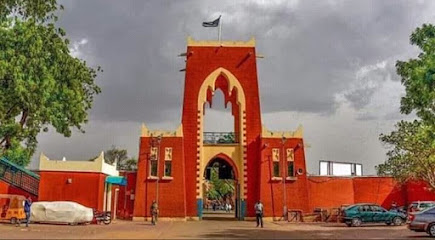
Kofar Gadon Kaya
Discover the rich heritage at Kofar Gadon Kaya, a historic gate in Kano, Nigeria, blending culture, architecture, and history.
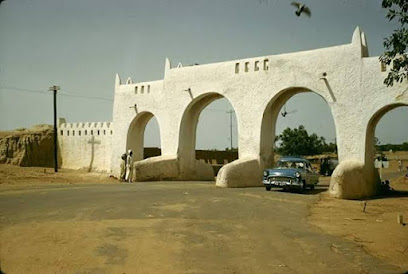
Gidan Dan Hausa Museum and Kano State Cultural Centre
Experience the vibrant culture and history of Kano at the Gidan Dan Hausa Museum, a gem for tourists seeking to explore Nigeria's rich heritage.
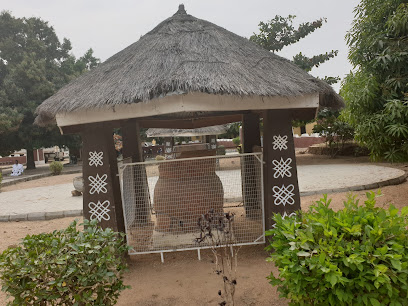
Gidan Makama Museum
Explore the Gidan Makama Museum and uncover the fascinating history and culture of Kano, Nigeria, in a stunning historic setting.
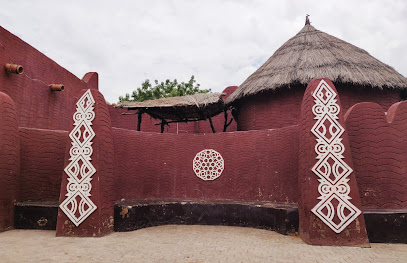
Kano Zoological Garden
Discover the enchanting Kano Zoological Garden, a family-friendly oasis in Kano, Nigeria, showcasing diverse wildlife and lush landscapes.
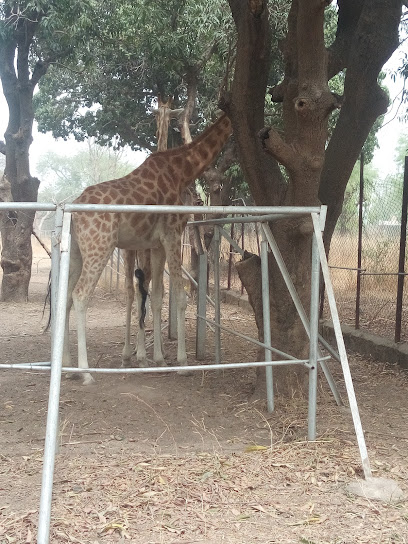
Big Joe
Discover the tranquility of Big Joe Park, a lush green sanctuary in Kano perfect for picnics, leisurely walks, and connecting with local culture.
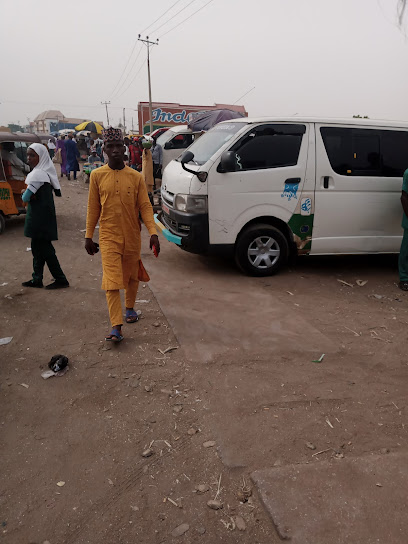
Roxy Amusement Park
Explore the thrill and joy of Roxy Amusement Park in Kano, a must-visit destination for family fun amid beautiful surroundings.
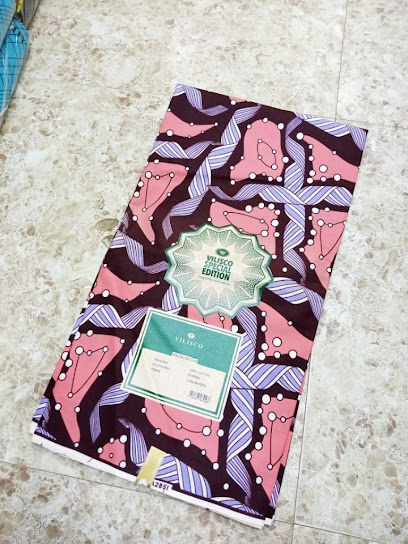
Minjibir Park
Experience the beauty and tranquility of Minjibir Park in Kano, a perfect retreat for nature lovers and families seeking outdoor fun.
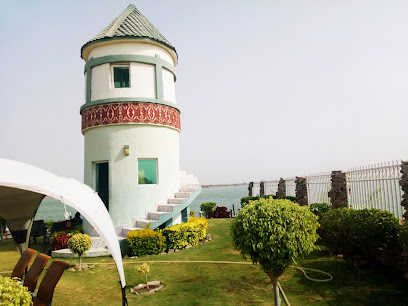
Minjibir park
Discover tranquility and natural beauty at Minjibir Park, a perfect escape for picnics, strolls, and family outings in Kano, Nigeria.
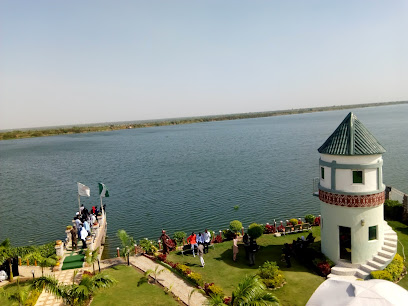
Sheka Baranda
Discover Sheka Baranda, a serene park in Kano offering lush landscapes and a tranquil escape from the city's hustle and bustle.
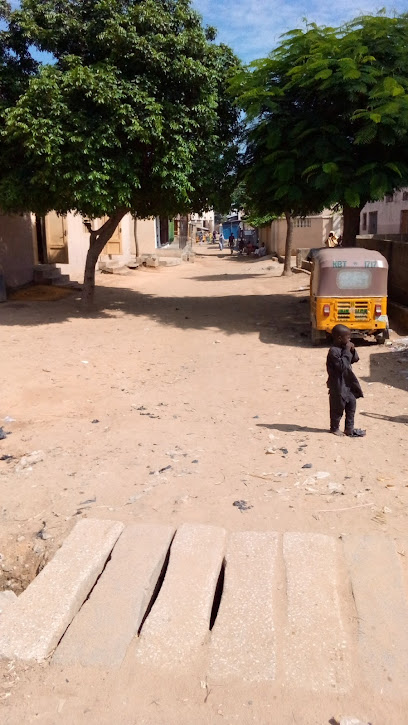
Sky Park and Gardens
Discover the enchanting Sky Park and Gardens in Kano, where thrilling rides meet serene landscapes for an unforgettable family experience.
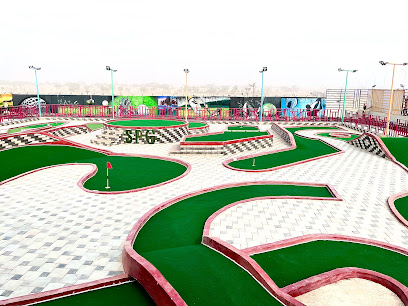
Love Garden
Immerse yourself in the natural beauty of Love Garden, a serene oasis in Kano's Bayero University, perfect for relaxation and exploration.
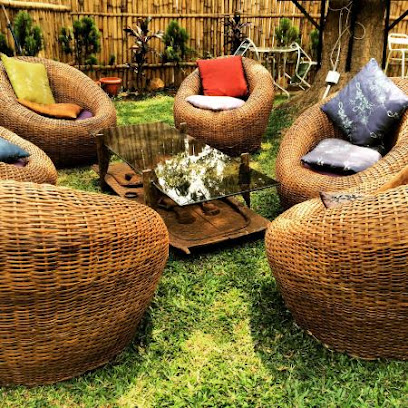
KANAWA PARK
Experience the tranquil beauty of Kanawa Park in Kano, Nigeria, a lush escape perfect for relaxation and outdoor adventures.
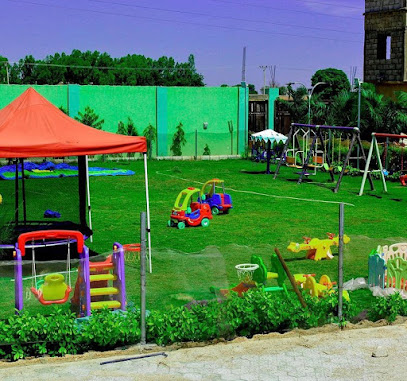
Fun City Park
Explore Fun City Park in Kano: Vibrant green spaces, recreational activities, and a family-friendly atmosphere await you in this beautiful urban oasis.
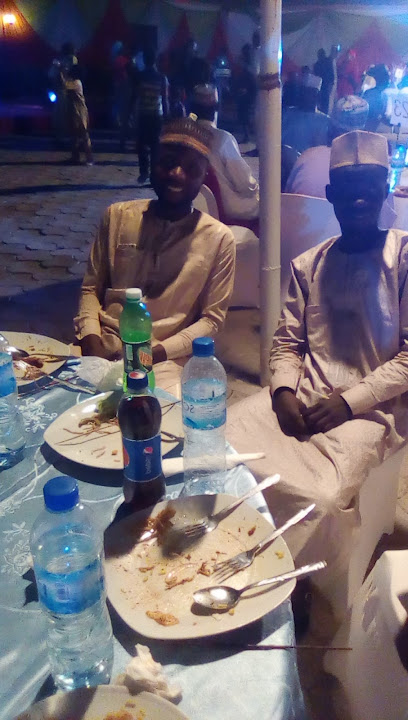
Essential places to dine
Gusto Restaurant
Experience exquisite dining at Gusto Restaurant in Kano with a fusion of Asian and Mediterranean flavors.
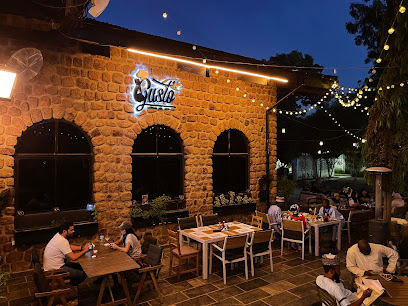
Ten to Ten Restaurant
Discover the vibrant flavors of Nigeria at Ten to Ten Restaurant in Kano – where local meets international cuisine in a warm setting.
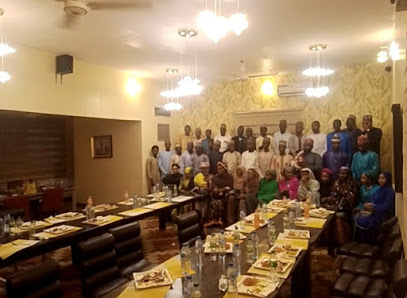
Cilantro Kano
Experience authentic Indian cuisine at Cilantro Kano - where traditional flavors meet modern hospitality.
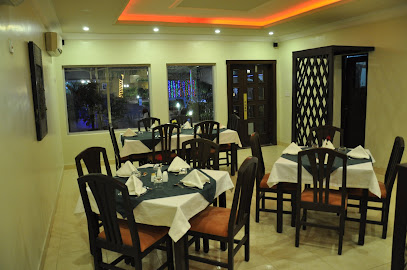
Igwe's Palace
Discover authentic Nigerian flavors at Igwe's Palace in Kano's lively Sabon Gari district; where tradition meets taste.
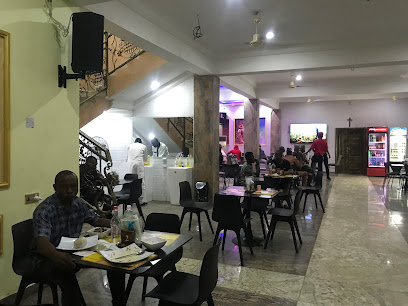
Tribes by Meena
Discover authentic Nigerian flavors at Tribes by Meena in Kano—where culinary tradition meets modern dining.
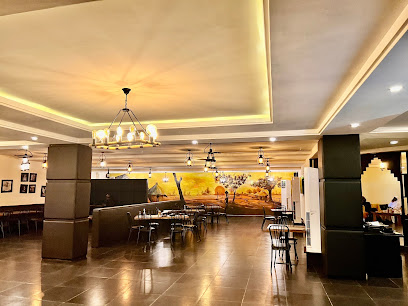
Jalsa Resturant
Experience authentic Indian flavors at Jalsa Restaurant in Kano - where tradition meets taste in every bite.
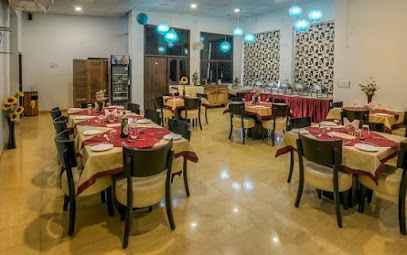
Corner Indian Grill
Experience authentic Indian cuisine at Corner Indian Grill in Kano; where every dish tells a story of rich flavors and traditions.
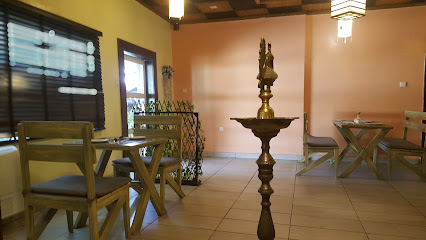
Cilantro Tahir
Experience the vibrant flavors of India at Cilantro Tahir in Kano – where every meal is a delightful journey through authentic cuisine.
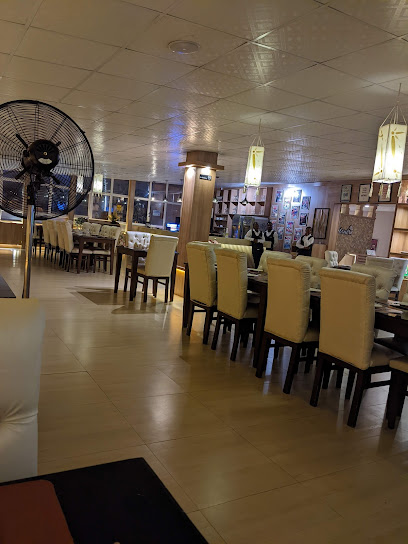
Green Park Restaurant
Experience authentic Nigerian cuisine at Green Park Restaurant in Kano with fresh ingredients and diverse flavors in a welcoming atmosphere.
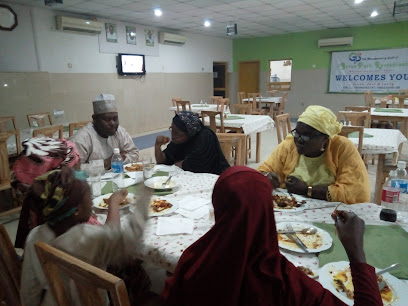
Las Vegas restaurant
Savor the best of local and international cuisine at Las Vegas Restaurant in Kano – where every meal is a celebration of flavor.
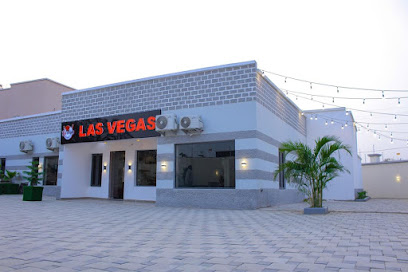
Shab'an Restaurant
Experience authentic Nigerian cuisine at Shab'an Restaurant – a must-visit dining spot in Kano for breakfast lovers and fast food enthusiasts alike.
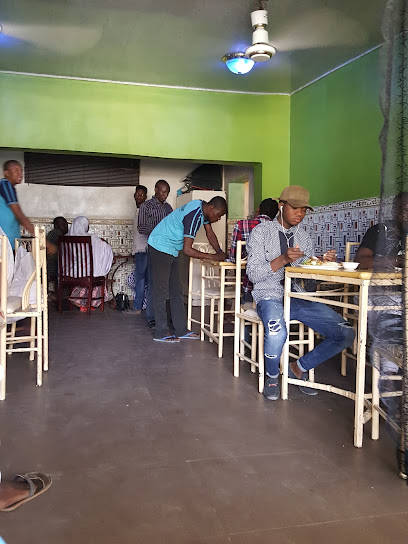
BIG BITE GRILL & CURRY HOUSE, INDIAN CUISINE.
Experience the vibrant tastes of India at Big Bite Grill & Curry House in Kano - where every dish tells a story.
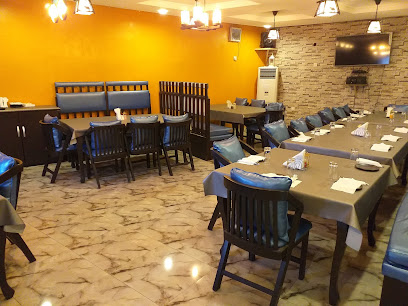
Flavours Restaurant
Discover the vibrant tastes of Nigeria at Flavours Restaurant in Kano - where tradition meets modern cuisine.
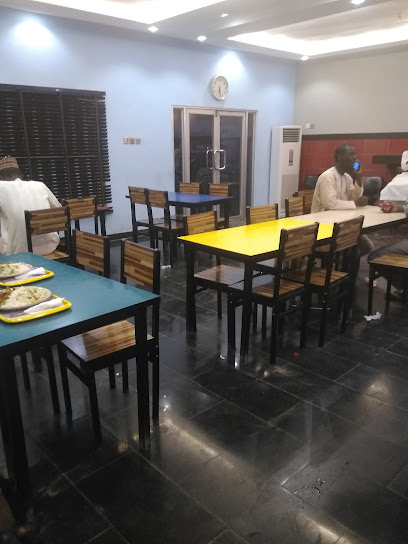
Mai takobi restaurant
Experience the rich flavors of Nigeria at Mai Takobi Restaurant in Kano City - a top choice for delightful breakfast dishes.
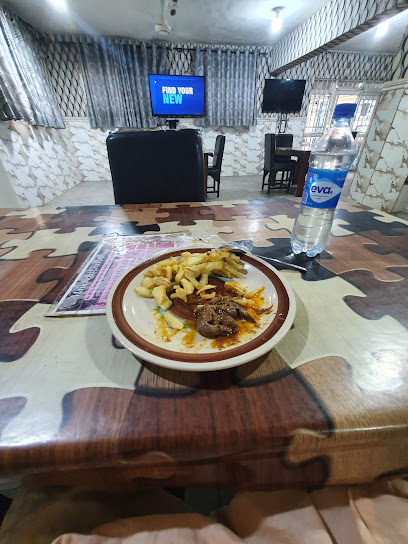
ZAZU Restaurant
Discover ZAZU Restaurant in Kano – where traditional Nigerian cuisine meets modern dining in a vibrant atmosphere.
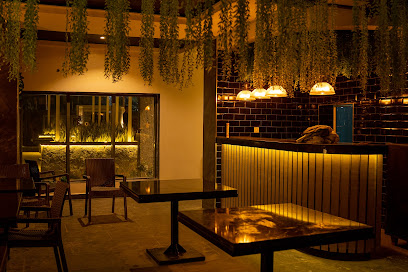
Markets, malls and hidden boutiques
Grand Square Supermarket & Stores Kano
Discover the essence of Kano at Grand Square Supermarket & Stores, where local culture and vibrant shopping converge.
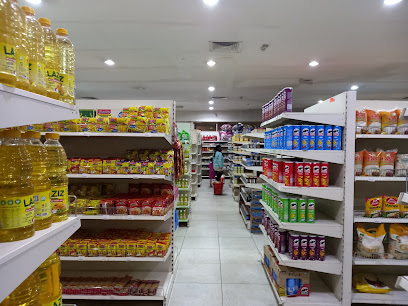
Sahad Stores Ltd. 7hubent WhatsApp Marketing Kano
Explore Sahad Stores Ltd. in Kano for a diverse shopping experience, blending local culture with modern retail in a vibrant atmosphere.
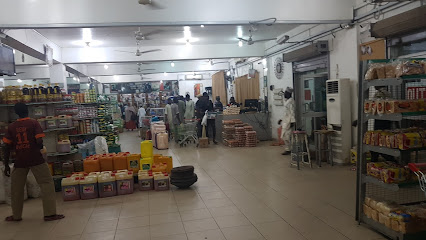
Jifatu Shopping Centre
Experience the vibrant shopping culture at Jifatu Shopping Centre, Kano's premier destination for groceries and local flavors.
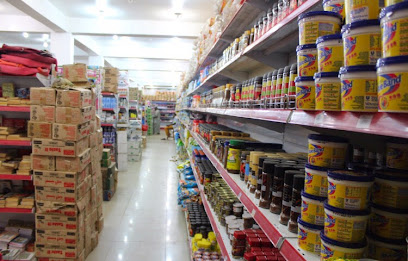
Go Gorgeous 7hubent WhatsApp Kano state Best Digital Marketer
Explore the latest fashion trends and local styles at Go Gorgeous, Kano's premier boutique for clothing and accessories.
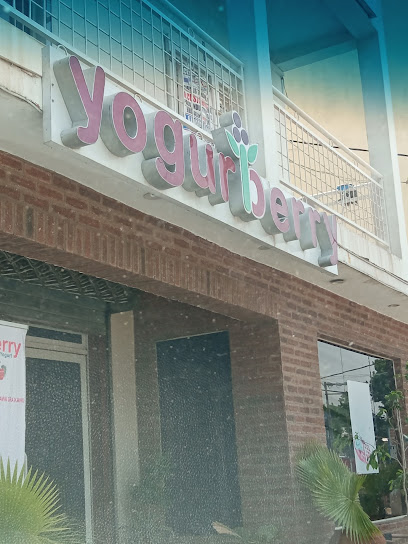
Sahad Store
Experience the best of Kano shopping at Sahad Store, where local flavors and convenience meet.
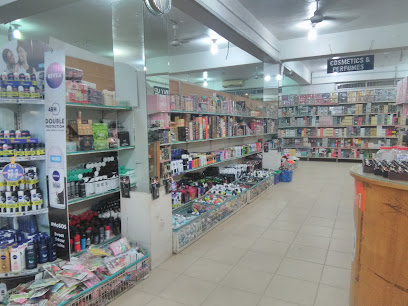
Pyramid Stores
Experience the vibrant local culture at Pyramid Stores in Kano, Nigeria, where you can shop for fresh produce, local delicacies, and unique souvenirs.
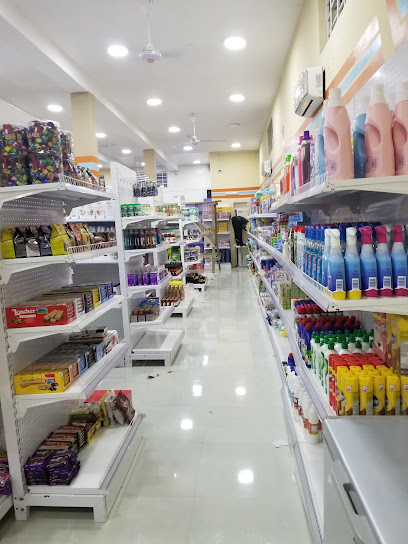
Sadaraki Stores
Discover the flavors of Kano at Sadaraki Stores, your go-to grocery destination for fresh produce and local delicacies.
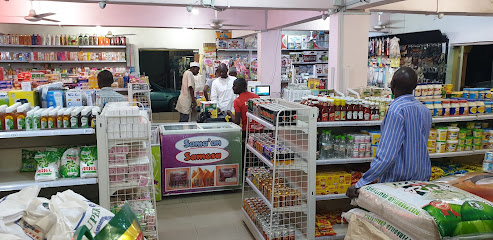
B.S EXCLUSIVE BOUTIQUE
Discover the essence of Kano's fashion scene at B.S Exclusive Boutique, where style meets quality in a vibrant shopping atmosphere.
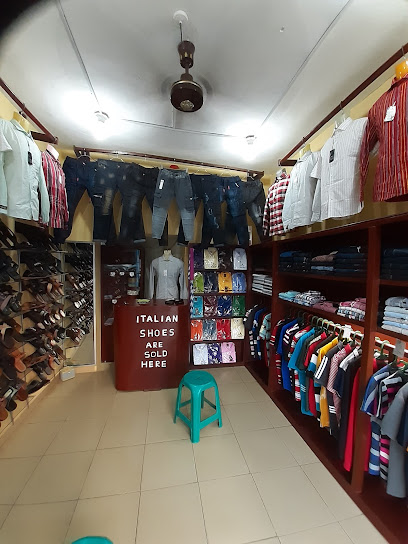
MINISO Lifestyle
Explore a vibrant shopping experience at MINISO Lifestyle in Kano, offering trendy products and a unique local atmosphere.
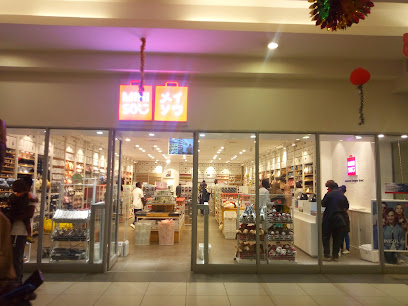
Shopchop
Shopchop in Kano: Your premier destination for fresh groceries and local flavors, with convenient delivery and e-commerce services.

Universal Stores Kano 7hubent WhatsApp Kano state Best Digital Marketer
Explore Universal Stores Kano, a vibrant supermarket offering a diverse range of products, fresh local produce, and a taste of Nigerian culture.
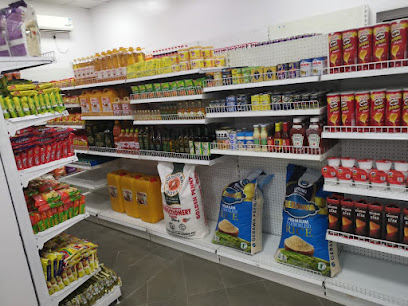
GIFTS SHOP By RedCabana
Discover unique gifts and local treasures at GIFTS SHOP By RedCabana, the perfect stop for tourists in Kano, Nigeria.
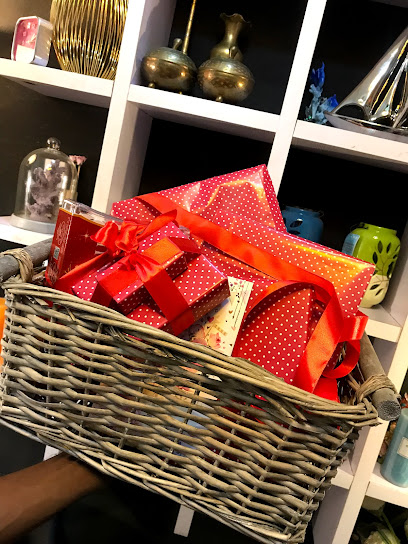
The Gift Booth
Discover unique handcrafted gifts and local art at The Gift Booth in Kano, a must-visit shop for tourists seeking authentic Nigerian souvenirs.
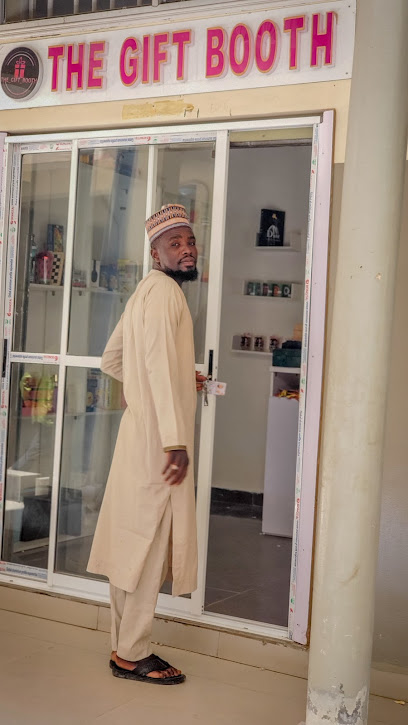
BigTime Boutique
Discover unique fashion styles and local craftsmanship at BigTime Boutique in Kano, Nigeria – a stylish haven for all fashion lovers.
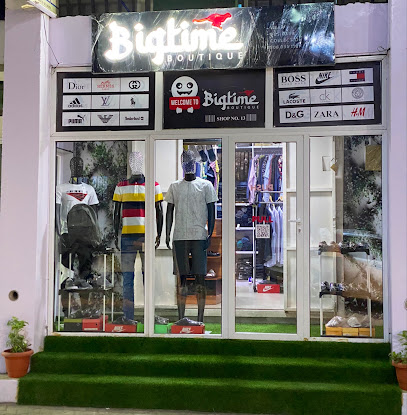
Swaggright Botique
Discover unique fashion and local craftsmanship at Swaggright Boutique, a must-visit shopping destination in the heart of Kano, Nigeria.
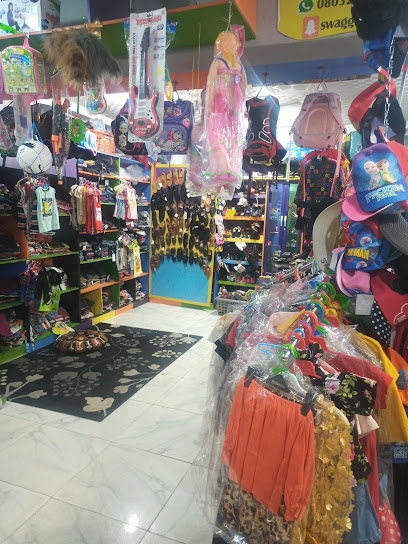
Essential bars & hidden hideouts
COOLIO RESTO LOUNGE Kano 7hubent
Experience the vibrant atmosphere and diverse culinary delights at Coolio Resto Lounge in Kano, where locals and tourists unite.
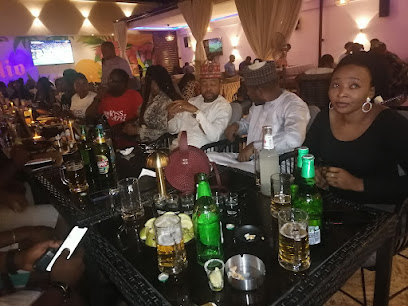
Nextdoor Park kano
Discover the ultimate sports bar experience at Nextdoor Park Kano, where great food, drinks, and live sports come together in an unforgettable atmosphere.
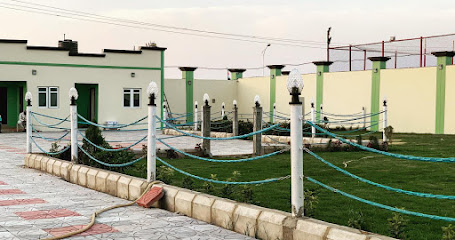
Zaro Lounge
Discover Zaro Lounge in Kano: a vibrant bar and lounge perfect for relaxing, socializing, and enjoying live music with friends.
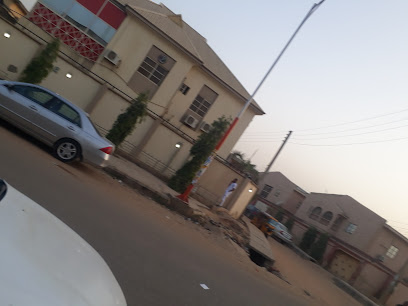
Piccolo
Discover the vibrant atmosphere of Piccolo, a must-visit bar in Kano, Nigeria, offering a delightful mix of drinks and social experiences.
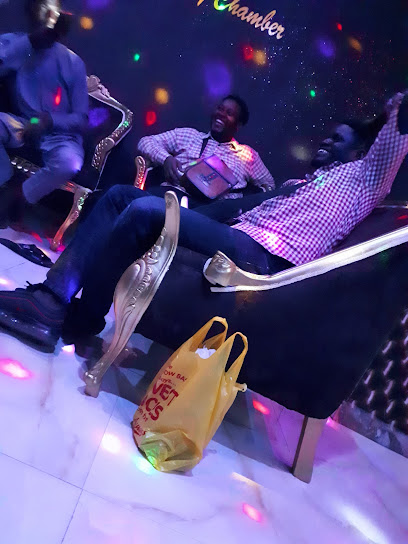
Cardinal Bar
Experience the vibrant nightlife of Kano at Cardinal Bar, where locals and tourists unite for great drinks and unforgettable moments.

Madagascar Lounge
Discover the lively and inviting atmosphere of Madagascar Lounge in Kano, a perfect spot for drinks, socializing, and experiencing local culture.
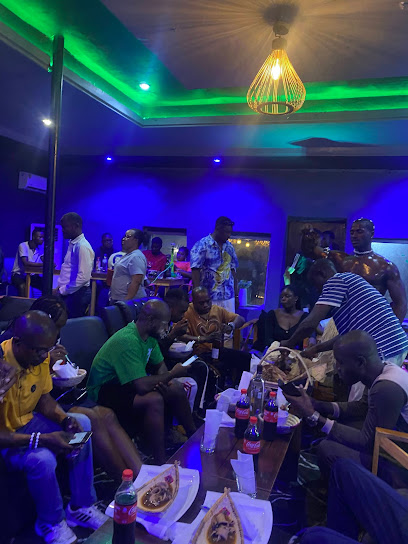
Villa Atlanta Garden and Lounge
Discover the vibrant nightlife of Kano at Villa Atlanta Garden and Lounge, a serene bar perfect for relaxation and socializing with refreshing drinks.
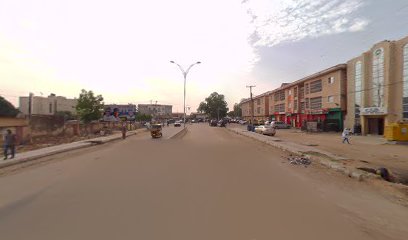
Simon's Place Bar & Relaxation
Discover the vibrant atmosphere of Simon's Place Bar & Relaxation in Kano, where refreshing drinks and local culture meet.

Knight House Grill and Bar
Discover the vibrant atmosphere and diverse menu at Knight House Grill and Bar, your perfect spot for dining and nightlife in Kano.
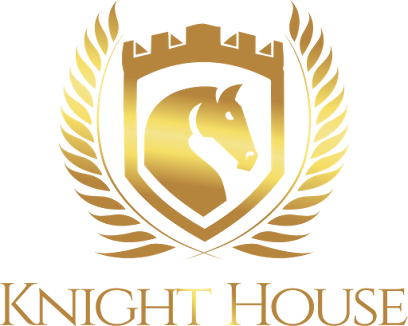
Jericho Tavern
Discover the vibrant atmosphere of Jericho Tavern in Kano, where refreshing drinks and local culture come together for the perfect night out.
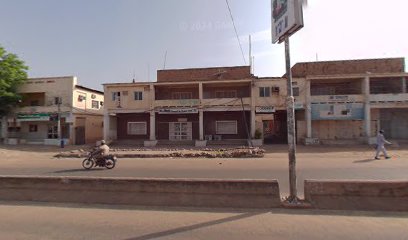
dragon Family
Experience the lively ambiance and diverse drink selection at Dragon Family Bar, a must-visit nightlife destination in Kano.
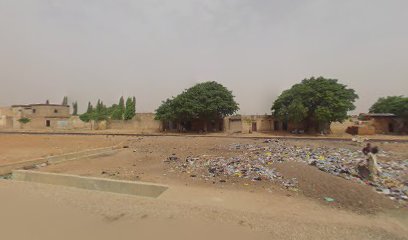
padded
Experience the vibrant nightlife of Kano at Padded, a lively bar with a welcoming atmosphere and a great selection of drinks.
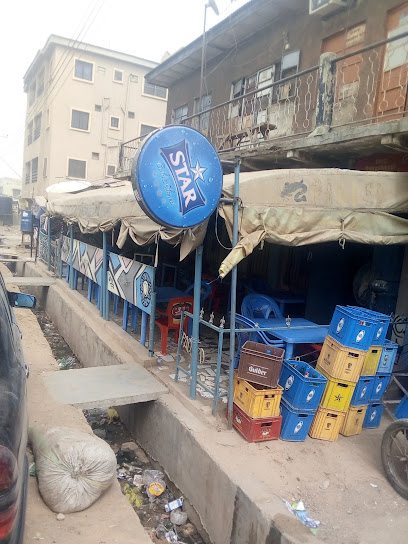
TOP Rank Restaurant and bar
Experience the vibrant flavors and lively atmosphere at TOP Rank Restaurant and Bar in Sabon Gari, Kano.
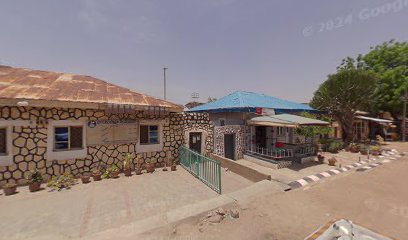
MOSCO COOL SPOT
Experience the vibrant nightlife of Kano at Mosco Cool Spot, where every night is a celebration of local culture and camaraderie.
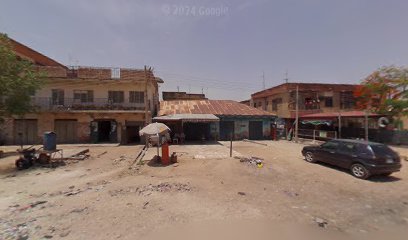
Local Phrases
-
- HelloSannu
[sahn-noo] - GoodbyeSai anjima
[sigh ahn-jee-mah] - YesEh
[eh] - NoA'a
[ah-ah] - Please/You're welcomeDa zan yi
[dah zahn yee] - Thank youNa gode
[nah goh-deh] - Excuse me/SorrySamu
[sah-moo] - How are you?Yaya dai?
[yah-yah dah-ee] - Fine. And you?Lafiya. Kana da lafiya?
[lah-fee-yah kah-nah dah lah-fee-yah] - Do you speak English?Kana da harshe da Turanci?
[kah-nah dah hahr-shay dah too-rahn-chee] - I don't understandBa na fahimci
[bah nah fah-heem-chee]
- HelloSannu
-
- I'd like to see the menu, pleaseIna so ku ga menu, don Allah
[ee-nah soh koo gah meh-noo, dohn ah-lah] - I don't eat meatBa na ci nama
[bah nah chee nah-mah] - Cheers!Arafa
[ah-rah-fah] - I would like to pay, pleaseIna so ku kwashe, don Allah
[ee-nah soh koo kwah-sheh, dohn ah-lah]
- I'd like to see the menu, pleaseIna so ku ga menu, don Allah
-
- Help!Taimaka!
[tai-mah-kah] - Go away!Huta!
[hoo-tah] - Call the Police!Kira karin gini!
[kee-rah kah-reen gee-nee] - Call a doctor!Kira mai jiki!
[kee-rah my jee-kee] - I'm lostNa dubi
[nah doo-bee] - I'm illNa yin maganinmu
[nah yeeng mah-gah-neen-moo]
- Help!Taimaka!
-
- I'd like to buy...Ina so na saye...
[ee-nah soh nah sigh-yeh...] - I'm just lookingBa ni da gani
[bah nee dah gah-nee] - How much is it?Shi ne yadda?
[shee neh yahd-dah] - That's too expensiveWai haka wuta
[wah-ee hah-kah woo-tah] - Can you lower the price?Za ka iya sake 'yan wasa?
[zah kah ee-yah sah-kay yahn wah-sah]
- I'd like to buy...Ina so na saye...
-
- What time is it?Yaya lokaci ne?
[yah-yah loh-kah-chee neh] - It's one o'clockLokacin bakwai tarihi
[loh-kah-cheen bah-kwai tah-ree-hee] - Half past (10)Nau'in kwanakin tarihi (10)
[now-een kwah-nah-keen tah-ree-hee (10)] - MorningSafe
[sah-fay] - AfternoonZuwa rana
[zoo-wah rah-nah] - EveningYamma
[yahm-mah] - YesterdayJibi
[jee-bee] - TodayYau
[yah-oo] - TomorrowGobe
[goh-beh] - 1Daya
[dah-yah] - 2Biyu
[bee-you] - 3Uku
[oo-koo] - 4Huɗu
[hoo-doo] - 5Biɗa
[bee-dah] - 6Shida
[shee-dah] - 7Bakwai
[bah-kwai] - 8Takwas
[tah-kwahs] - 9Tara
[tah-rah] - 10Goma
[goh-mah]
- What time is it?Yaya lokaci ne?
-
- Where's a/the...?Ina ne...
[ee-nah neh] - What's the address?Yaya adireshin ne?
[yah-yah ah-dee-ray-sheen neh] - Can you show me (on the map)?Za ka nuna mini (a cikin rubutu)?
[zah kah noo-nah mee-nee (ah chee-keen roo-boo-too)] - When's the next (bus)?Yaya lokacin sauran (motar)?
[yah-yah loh-kah-cheen sah-oo-rahn (moh-tahr)] - A ticket (to ....)Tikiti (zuwa ....)
[tee-kee-tee (zoo-wah)]
- Where's a/the...?Ina ne...
History of Kano
-
Kano, one of the oldest cities in West Africa, traces its origins to around 1000 AD. The city was initially established by the Hausa people and became a significant center for trade, culture, and Islamic scholarship. The foundation of Kano is often attributed to Bagauda, a prince of the Hausa people, who established a dynasty that ruled the city for centuries.
-
The Kano Chronicle is a seminal work documenting the history of the city from its founding up until the 19th century. Written in Arabic, it provides a detailed account of the reigns of various rulers, the city's development, and its interactions with neighboring states. This manuscript serves as a critical source for understanding the early history of Kano and its significance in the region.
-
During the medieval period, Kano emerged as a major hub in the trans-Saharan trade network. The city's strategic location made it a key stop for caravans traveling between the West African interior and the Mediterranean. Kano's merchants traded in goods such as leather, textiles, and grains, while also importing salt, horses, and other valuable items from North Africa and beyond.
-
Islam was introduced to Kano in the 14th century and became deeply ingrained in its culture and governance. The city became a center for Islamic learning, attracting scholars from across the region. Numerous mosques and madrasas were established, and Islamic law became the basis for the city's legal system. The influence of Islam is still strongly felt in Kano today.
-
In the early 19th century, Kano became part of the Sokoto Caliphate following the Fulani Jihad led by Usman dan Fodio. The city's incorporation into this Islamic state brought about significant political and social changes. Kano became one of the caliphate's most important emirates, and its rulers, known as Emirs, played a crucial role in the administration of the region.
-
In 1903, Kano was conquered by British forces and incorporated into the Northern Nigeria Protectorate. The British colonial period brought about new administrative structures, economic changes, and the introduction of Western education. Despite these changes, traditional institutions, including the Emirate system, continued to play a significant role in local governance.
-
Following Nigeria's independence in 1960, Kano experienced rapid urbanization and economic growth. The city became an industrial and commercial center, attracting people from across Nigeria and beyond. However, this period also saw challenges such as ethnic and religious tensions, which have occasionally flared into conflict.
-
Today, Kano remains a vibrant and dynamic city that blends tradition and modernity. It is a major economic hub in northern Nigeria, renowned for its bustling markets, historical landmarks, and rich cultural heritage. The city's ancient walls and gates, the Gidan Makama Museum, and the vibrant Dala Hill are just a few of the many attractions that draw visitors to Kano.
Kano Essentials
-
Kano is accessible via Mallam Aminu Kano International Airport (KAN), which serves both domestic and international flights. Major airlines such as Ethiopian Airlines, EgyptAir, and Turkish Airlines operate routes to Kano. From the airport, you can take a taxi to the city center, which is approximately 30 minutes away. Alternatively, you can use ride-hailing services or arrange for hotel pickups.
-
Kano offers several modes of transportation. Taxis and ride-hailing services are widely available and convenient for getting around the city. Public buses and minibuses (known locally as 'danfo') cover most areas, though they can be crowded and less comfortable. For longer distances, you can use intercity buses or rent a car. Be aware of traffic congestion during peak hours.
-
The official currency in Nigeria is the Nigerian Naira (NGN). Credit cards are accepted in major hotels, restaurants, and shops, but it is advisable to carry cash for smaller establishments and local markets. ATMs are available across the city, but ensure you use those in secure locations. Currency exchange services are also available at the airport and in some hotels.
-
Kano is generally safe for tourists, but it's essential to take standard precautions. Avoid walking alone at night and be cautious in crowded areas to prevent pickpocketing. Areas such as Sabon Gari have higher crime rates and should be visited with caution. Always stay updated on local news and advisories. It's also recommended to register with your embassy upon arrival.
-
In case of an emergency, dial 112 for immediate assistance. Kano has several hospitals and clinics, including the Aminu Kano Teaching Hospital, which provides comprehensive medical services. It is recommended to have travel insurance that covers medical emergencies. Pharmacies are available for minor health issues, and police stations are scattered throughout the city for law enforcement needs.
-
Fashion: Do dress modestly, especially when visiting religious sites. Avoid wearing revealing clothing. Religion: Do respect local customs and traditions. Always remove your shoes and cover your head when entering mosques. Public Transport: Do be respectful and give up your seat to elderly passengers. Don’t eat or drink on public transport. Greetings: Do greet people with a handshake. Respect traditional greetings such as 'Salam Alaikum.' Eating & Drinking: Do try local delicacies and accept food offerings graciously. Don’t refuse hospitality, as it is considered impolite.
-
To experience Kano like a local, visit the Kurmi Market, one of the oldest markets in Africa, where you can buy traditional crafts and textiles. Engage with locals; they are often friendly and eager to share their culture. Don't miss the Gidan Makama Museum to learn about the history of Kano. For a unique experience, attend a traditional Hausa festival if your visit coincides with one.
Trending Landmark in Kano
-
Kano Zoo
-
Emir's Palace Kano City
-
Mallam Aminu Kano International Airport (KAN)
-
Filmhouse Cinemas Kano
-
Chilla Luxury Suites Kano
-
Meena Events Center
-
HAMDANA INTERNATIONAL CO. NIG LTD
-
caps sellers
-
Cilantro Kano
-
Sabon Gari Market
-
Igwe's Palace
-
Kofar Gadon Kaya
-
Naibawa Motor Park
-
Gidan Dan Hausa Museum and Kano State Cultural Centre
-
Yankaba Motor Park, Kano
Nearby Cities to Kano
-
Things To Do in Kaduna
-
Things To Do in Jos
-
Things To Do in Abuja
-
Things To Do in Maiduguri
-
Things To Do in Yola
-
Things To Do in Garoua
-
Things To Do in Enugu
-
Things To Do in Maroua
-
Things To Do in Asaba
-
Things To Do in Onitsha
-
Things To Do in Bamenda
-
Things To Do in Mamfe
-
Things To Do in N'Djamena
-
Things To Do in Benin City
-
Things To Do in Niamey











